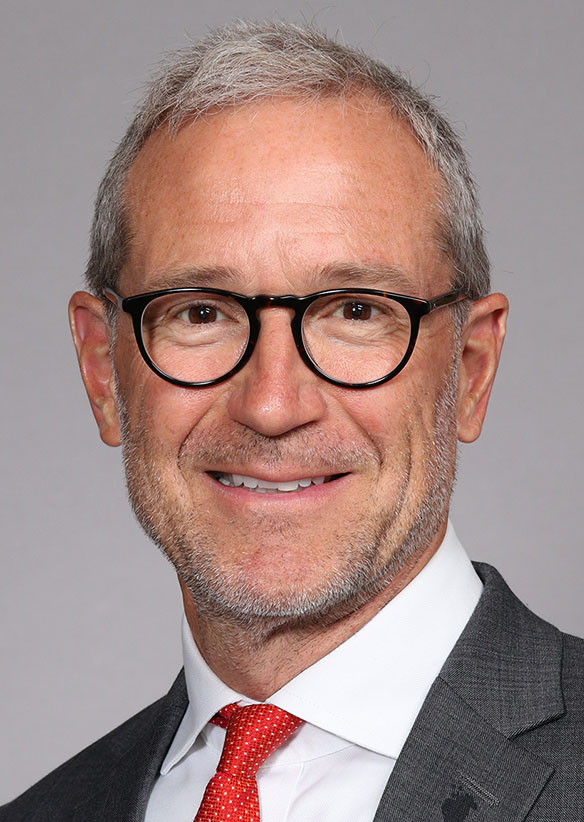For Protestants, the election of a new pope likely presents an assortment of conflicting reactions. Faced with the media frenzy and genuine popular interest that accompanies the conclave and then accession of a new Bishop of Rome it is hard to avoid the earnest messaging that this is a big deal. On the other hand, though, it is a bit difficult to get too overawed or impressed with the revelation of a fresh incumbent in the office of Antichrist. So, as I watch with genuine interest (akin to watching the runup to a presidential election) all the ecclesiastical rigmarole of Rome on full display, I find it entertaining, repulsive, significant, absurd (seriously . . . smoke signals in 2025!?), irrelevant, grand, and pathetic all at once. It is enormously gratifying that the world feels compelled to stop and watch the church be the church; even as it is fantastically frustrating that the intrigue, power struggles, and ancient grandeur of the proceedings eclipse any mention or thought of Christ and his gospel. Alas, such is the reality of Rome being Rome.
For several years, now, the systematics curriculum at CSL has been doing its own work of imposing Rome on our students, making Richard John Neuhaus’s, Catholic Matters, required reading in their second year. I once harbored some concern that reading the book might coax a few susceptible readers closer to the shores of the Tiber, but those fears have long since been allayed by the now predictable and nearly universal adverse reaction of pious Lutherans to the personal testimony of a traitor. To think that a Lutheran could turn to Rome strikes diehard sons and daughters of the Reformation as tragically scandalous. But it still happens—and as a few students know—with some degree of regularity. The lure, it seems, is often the same as it was for Neuhaus, who confessed, “What stands out is the sheer isness of the Catholic Church.”[1] Indeed, and that isness is on full display in Rome this week.
Rather than experiencing twinges—or floods—of awe, envy, or disgust, though, I think there is a better way for Lutherans to think about all the conclave fanfare. We need to recognize that mother Rome still has a long way to go to get her act together and start preaching Christ and his gospel the way that she should. And, more than that, we need to remind ourselves again that no church and no succession and no bishop gives credibility to Christ’s gospel. Only Jesus does that. Melanchthon made this wonderfully lucid in his pointed little treatise on the limits of papal power:
Furthermore, the ministry of the New Testament is not bound to places or persons like the Levitical ministry, but is scattered throughout the whole world and exists wherever God gives God’s gifts: apostles, prophets, pastors, teachers. That ministry is not valid because of the authority of any person but because of the Word handed down by Christ.[2]
Of course, this is the same treatise that argues for the papacy as the realm of the Antichrist, and the same treatise to which I and all my brothers in our Lutheran confession subscribe.
Melanchthon’s point is vitally important. The certainty of our gospel profession has nothing to do with who I am, who my pastor is, or who put either of us into the Office of the Holy Ministry. There are no holy hands that pass along the priestly magic from one generation to the next allowing sacraments to become conveyors of heavenly power. No man, no unbroken apostolic chain, no successor of Peter, no magisterium, no conclave, no church can lend credibility and assurance to the promise of the gospel. The bare word and promise of Christ are all the assurance and certainty that any Christian has or needs. With the world, I’ll watch the events in Rome unfold, pray for God’s mercy to prevail, pray for the reformation of all Christ’s church, and thank God for the extraordinary gift of the gospel made present for me through utterly ordinary things like the spoken word, a handful of water, a taste of bread and a sip of wine—all delivered to me by the ordinary man put there by Christ himself to deliver his gospel gifts to me.
[1] Richard John Neuhaus, Catholic Matters: Confusion, Controversy, and the Splendor of Truth. (New York: Basic Books, 2006), 66.
[2] Robert Kolb, Timothy Wengert, and Charles Arand, The Book of Concord: The Confessions of the Evangelical Lutheran Church (Minneapolis: Fortress Press, 2000), 334.



Leave a Reply
You must be logged in to post a comment.